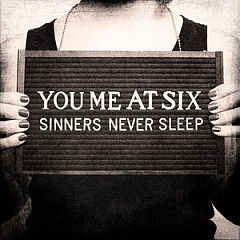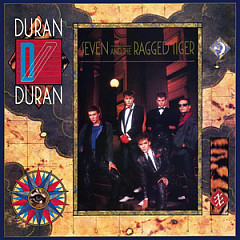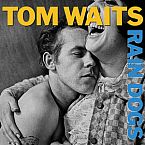Timeby Tom Waits

Songfacts®:
- "Time: time is a precious commodity," Tom Waits said on the introduction to this song on the Rain Dogs Island Records promo tape. That sums up the essence of the story here.
Each verse of "Time" deals with a street character and the hardships they're facing. It's followed by the chorus, which repeats the word "time" over and over but is just saying "it's time that you love." This line can have multiple meanings. The obvious assumption is that it means "it's time that you find someone to have a romantic relationship with." However, the song and the turn of phrase are ambiguous enough that it could also mean "you love time itself," or simply that "you love" in the broader spiritual sense of loving life broadly. - The third line places the character in East St. Louis. St Louis is also mentioned in Waits' "Train Song," "I Beg Your Pardon," and "Hold On."
East St. Louis is generally a rough place with a lot of crime. Tom Waits Fan suggests that East St. Louis may be "a Waitsian metaphor for being in the worst part possible of any town."
Waits has said he has no particular reason for using St. Louis. He told Jonathan Valania of The Magnet in 1999, "No, never lived there. It's a good name to stick in a song. Every song needs to be anatomically correct: You need weather, you need the name of the town, something to eat - every song needs certain ingredients to be balanced. You're writing a song and you need a town, and you look out the window and you see 'St. Louis Cardinals' on some kid's T-shirt. And you say, 'Oh, we'll use that.'" - The term "smart money" generally just means a safe bet or good investment.
"When they're on a roll" probably has a double-meaning, considering it's followed by the line "she pulls a razor from her boot." To be "on a roll" means to have a lucky streak, but "to roll" someone can also mean beating them down and taking their money.
"And pay the fiddler off" refers to the Middle Age legends of the Pied Piper of Hameln, who rid the town of Hameln of a rat infestation. The mayor refused to pay the piper, so he then used his mystical musical ways to draw all the children off with him, just as he'd done with the rats. In some versions of the tale he killed the kids, in others he returns them upon receiving payment.
Comments: 1
- Benji from BethlehemThis is the most beautiful song ever.
It means more than the general observations above.
It is a list of various situations in which the people need to stop and reflect on the real essence of living and hold on to something dear and meaningful.
More Songfacts:

LightsEllie Goulding
Ellie Goulding's hit song "Lights" is about her fear of the dark, which forces the singer to sleep with the lights on.

Like A PrayerMadonna
Madonna's hit "Like A Prayer" debuted in a Pepsi commercial, but Pepsi pulled the ad the next day when the controversial video appeared. Madonna got to keep her $5 million endorsement money.

Break FreeAriana Grande
Ariana Grande's collaboration with Zedd, "Break Free" came about after the Russian-German producer overheard Grande performing at a label showcase while he was backstage, and he mentioned to his team that he wanted to work with her.

The DilemmaYou Me at Six
The You Me at Six song "The Dilemma" got its title from the Vince Vaughn movie of the same name.

Lips Are MovinMeghan Trainor
Meghan Trainor wrote "Lips Are Movin" in just eight minutes with her writing partner Kevin Kadish.

The ReflexDuran Duran
"The Reflex" became a #1 hit for Duran Duran when Nile Rodgers remixed it using a sampler. Simon Le Bon refuses to say what it's about, but says it's "kind of childish song."
Editor's Picks

Brian Kehew: The Man Behind The RemastersSong Writing
Brian has unearthed outtakes by Fleetwood Mac, Aretha Franklin, Elvis Costello and hundreds of other artists for reissues. Here's how he does it.

Justin Hayward of The Moody BluesSongwriter Interviews
Justin wrote the classic "Nights In White Satin," but his fondest musical memories are from a different decade.

Emilio Castillo from Tower of PowerSongwriter Interviews
Emilio talks about what it's like to write and perform with the Tower of Power horns, and why every struggling band should have a friend like Huey Lewis.

Which Restaurants Are Most Mentioned In Song Lyrics?Song Writing
Katy Perry mentions McDonald's, Beyoncé calls out Red Lobster, and Supertramp shouts out Taco Bell - we found the 10 restaurants most often mentioned in songs.

Joe ElySongwriter Interviews
The renown Texas songwriter has been at it for 40 years, with tales to tell about The Flatlanders and The Clash - that's Joe's Tex-Mex on "Should I Stay or Should I Go?"

Lori McKennaSongwriter Interviews
Lori's songs have been recorded by Faith Hill and Sara Evans. She's performed on the CMAs and on Oprah. She also has five kids.

